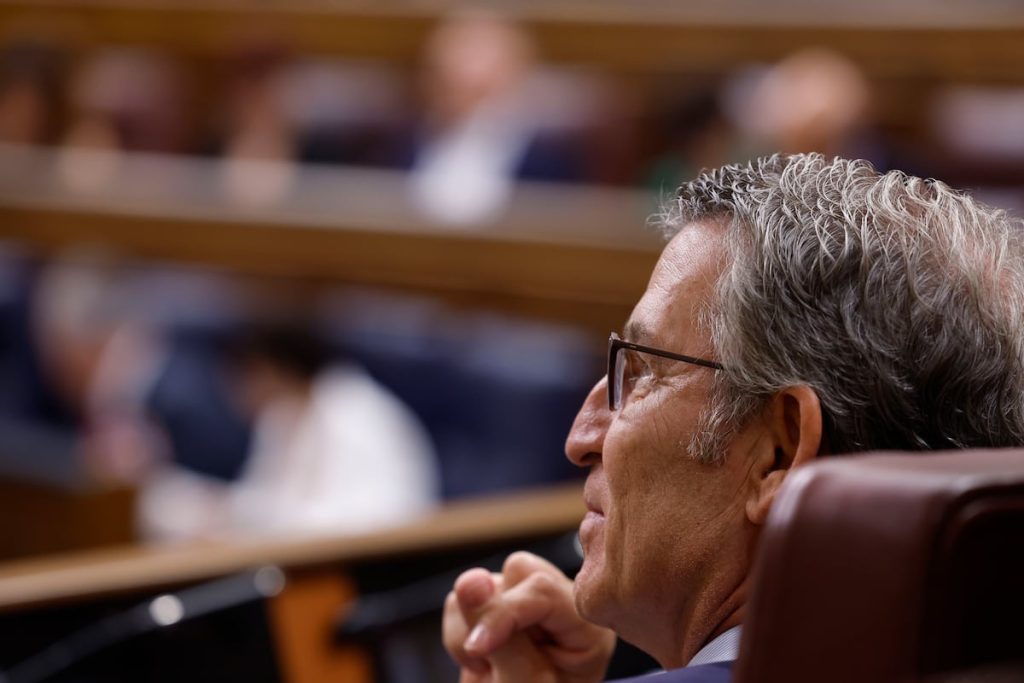The president of the Government, Pedro Sánchez, will meet with Edmundo González Urrutia on Thursday at La Moncloa, a day after the Congress of Deputies requested the government to recognize him as the elected president of Venezuela with the PSOE voting against. González Urrutia was granted asylum in Spain by the government last Sunday. Following the decision by the Congress to urge the government to recognize the victory of the opposition candidate in the July 28 elections, despite leftist opposition, the PP aims to take the political battle surrounding the Venezuelan crisis to Europe. The PP plans to present a similar resolution in the European Parliament recognizing González as the winner of the elections.
The European Parliament will hold a debate on the crisis in Venezuela next Tuesday in Strasbourg, France. The PP plans to propose a resolution similar to the one passed in the Spanish lower house, recognizing González as the legitimate president. The exiled Venezuelan leaders in Madrid hope that the recognition of González will be approved by a large majority in the European Parliament when it is voted on next Thursday. The decision will not be binding but will carry significant political weight. The aim is to increase pressure on EU governments to recognize the opposition candidate, as well as avoiding a repeat of the situation with Juan Guaidó in 2019.
The reaction from the Venezuelan government has been swift, with Diosdado Cabello, the Interior Minister and number 2 in the regime, criticizing the decision of the Spanish Parliament and asserting that it is an interference in Venezuela’s internal affairs. Jorge Rodríguez, president of the National Assembly controlled by the chavismo, has called for all diplomatic, consular, economic, and commercial relations with Spain to be severed. The government in Caracas has retaliated with a parliamentary resolution, mirroring the one from the Spanish Parliament and revealing the growing tensions.
Pedro Sánchez, who is scheduled to meet with Edmundo González, is considering recognizing him as the legitimate president of Venezuela in the future but believes that the timing is not yet right. The Spanish Foreign Minister, José Manuel Albares, has reiterated that Spain’s position aligns with the European consensus for now, with the possibility of reassessment in the future. The opposition in Venezuela sees the recognition of González as an opportunity to gain international support, as Maria Corina Machado expressed her satisfaction on social media regarding the Spanish Parliament’s decision.
Edmundo González has not made any public appearances since arriving in Madrid and is expected to speak to the press after meeting with Sánchez. The oposition in Venezuela sees him as a potential ambassador advocating for their cause internationally. The future of Venezuela, according to all involved parties, hangs in the balance in the coming months leading up to the inauguration of the president elected on July 28. The opposition hopes that international pressure and internal protests will contribute to the downfall of the Maduro regime, pending military support. The Spanish government, however, seeks dialogue with Maduro to address the crisis democratically.
As the standoff between the Venezuelan government and the opposition intensifies, the possibility of a resolution between the PP and the PSOE on Venezuela remains elusive. The division within the Spanish political landscape regarding Venezuela is evident, with the PP criticizing the PSOE’s stance on recognizing the opposition’s electoral victory. The situation in Venezuela has become a focal point for political maneuvering, both domestically and internationally, as all parties navigate the complex dynamics of the crisis.















